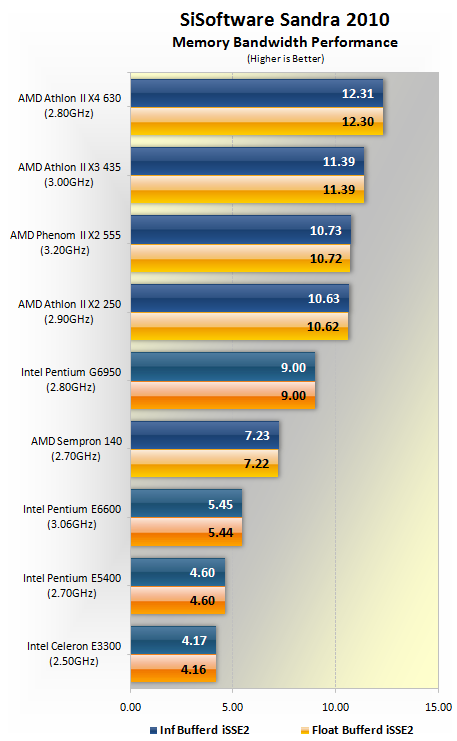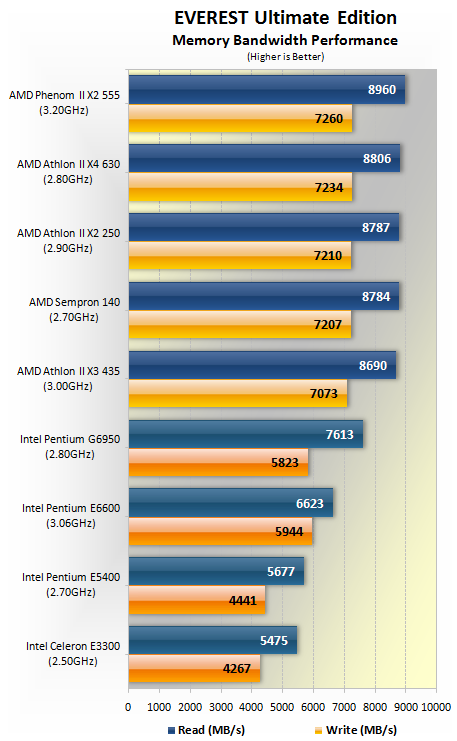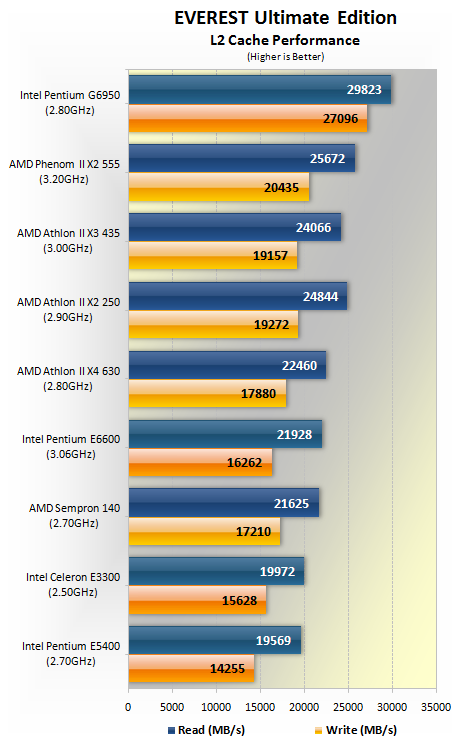Memory Bandwidth Performance

It is worth noting that all processor configurations used the same DDR3 memory clocked at 1333MHz using CAS8-8-8-20 timings. Despite this we see a large difference in bandwidth between the various processors and platforms.
When testing with SiSoftware Sandra 2010 the LGA775 processors saw very limited bandwidths. The Pentium E6600, for example, reached just 5.45GB/s while the E5400 was even slower with a measured bandwidth of 4.60GB/s.
The slowest AMD processor tested was the Sempron 140 with a bandwidth result of 7.23GB/s, but it was still considerably faster than any of the LGA775 processors from Intel. The Pentium G6950 which runs on the LGA1156 platform reached 9.0GB/s and was only slightly slower than AMD's dual-core processors. The Phenom II X2 and Athlon II X2 both delivered over 10GB/s of bandwidth.

The EVEREST Ultimate Edition results are interesting as they show all five AMD processors delivering the same memory performance. The Pentium E5400 and Celeron E3300 processors performed poorly, while the Pentium E6600 closed in on the Pentium G6950. As it stands until now, it would seem that the AMD CPUs have a significant bandwidth advantage over the Intel chips.

The Pentium G6950 may have struggled in the memory bandwidth tests, but looking at the on-die L2 cache is a very different story. The chip simply outclassed the AMD competition in this test, beating the Phenom II X2 555 by a significant 33% margin when comparing write performance. Even the Celeron E3300 and Pentium E6600/E5400 processors did not fare too badly in this test, though they were still slower than the Athlon II and Phenom II parts.